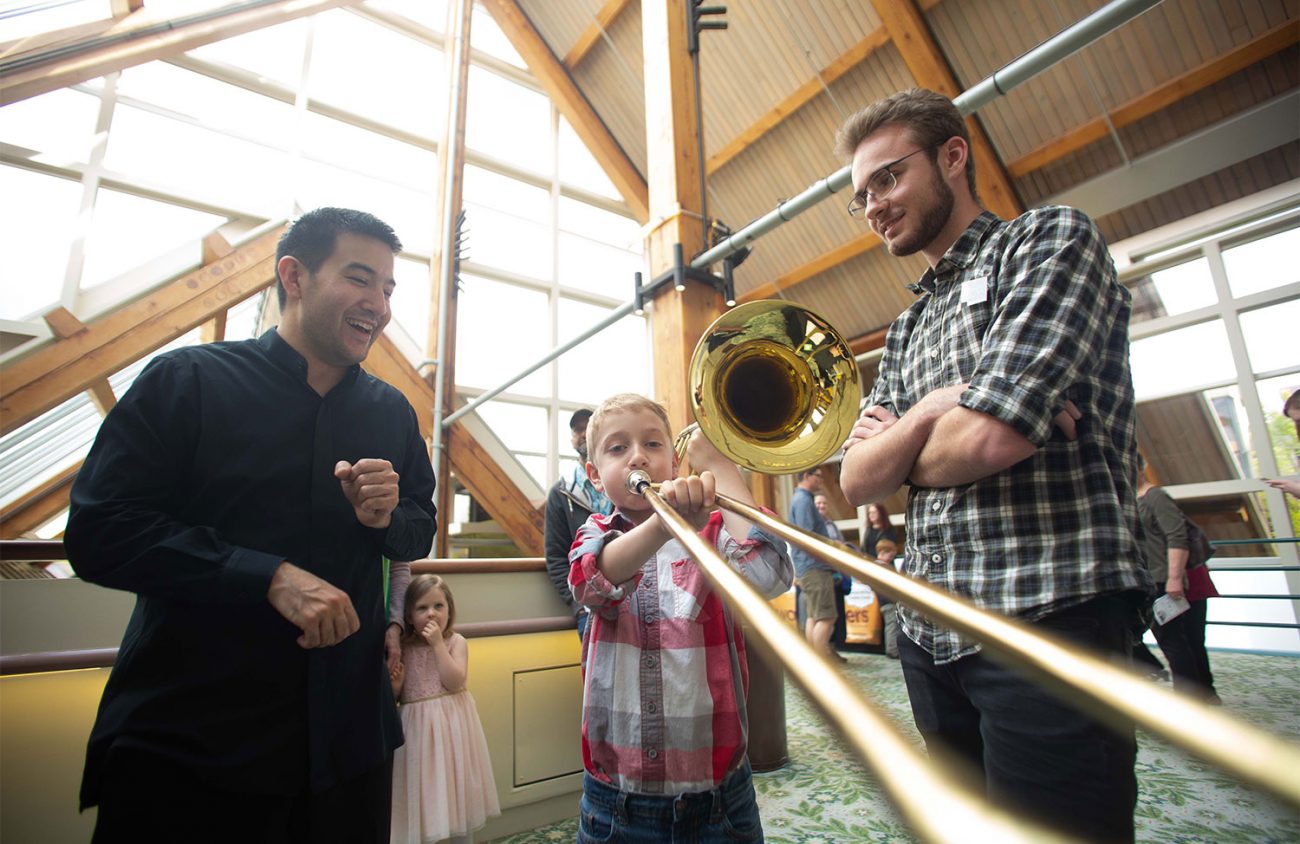Classical music carries a stigma of being inaccessible. Composer and conductor Leonard Bernstein, whose 100th birthday was celebrated by the Eugene Symphony last year, knew this, and he set out to introduce the classical music to the next generation of concertgoers.
Now, decades later, Francesco Lecce-Chong and the Eugene Symphony continue the tradition of getting children involved with classical music. The symphony’s “An Afternoon with Beethoven” aims to break down barriers to classical music by introducing youth to Ludwig van Beethoven.
Beethoven’s music is often seen as the emotionally charged work that pivoted music from the rigid Classical Period (of which Wolfgang Amadeus Mozart is king) to the Romantic Period. And it’s for good reason, when considering the role Beethoven’s deafness played when he was composing his Symphony No. 9 and Late String Quartets.
Beethoven’s temper is also seen as a point of intrigue. Back in Beethoven’s day, Napoleon Bonaparte was first seen as a charismatic leader who would essentially make France great again. Beethoven was so enthralled by the leader that he dedicated his third symphony to him.
When Bonaparte declared himself emperor of France, Beethoven fell into a bit of rage and scratched out the dedication.
The concert program features excerpts from some of Beethoven’s standout symphonic works. Concertgoers will have a chance to hear excerpts from Beethoven’s symphonies No. 3, 5, 6, 7 and 9.
The performance also features the South Eugene High School Robotics Team, a visit from Beethoven himself (played by Bill Hulings), a lesson about the sections of the orchestra, an instrument petting zoo and a singing circle featuring the theme from “Ode to Joy.”
Eugene Symphony’s “An Afternoon with Beethoven” has two performance times: 1:30 and 3:30 pm Sunday, April 28, at the Hult Center. Tickets are $10 for youth and $20 for adults.
